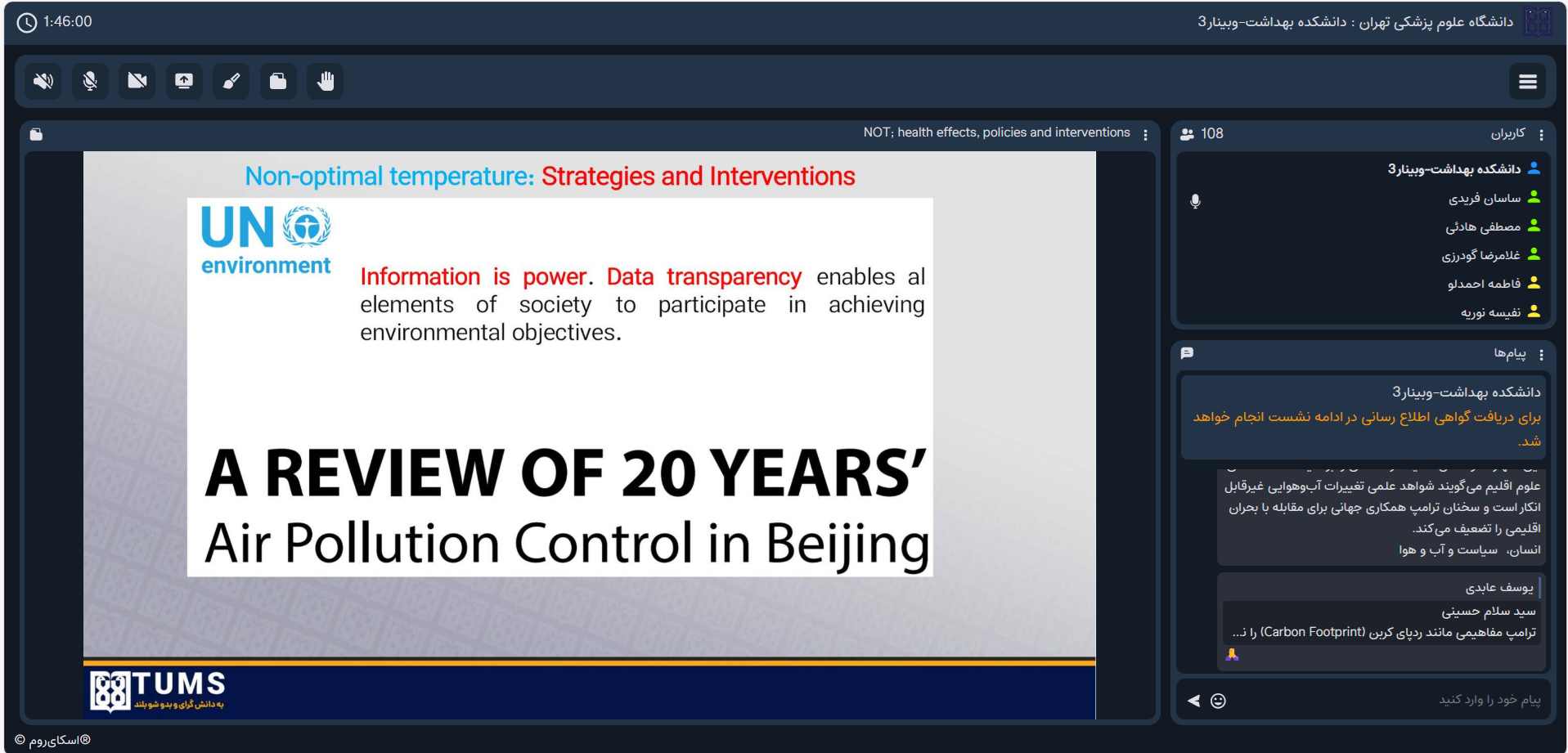On the occasion of the International Day of Climate Action, and under the auspices of the Climate Change and Health Research Cen
The 57th Monthly Climate Change Meeting, entitled “Climate Change, Non-Optimal Air Temperatures, and Health: Epidemiology and Response Strategies,” was held.
The 57th Monthly Climate Change Meeting, titled “Climate Change, Non-Optimal Air Temperatures, and Health: Epidemiology and Response Strategies,” was held on October 19, 2025, with the participation of a large number of interested attendees.
.png)
The 57th Climate Change Meeting Held on “Climate Change, Non-Optimal Air Temperatures, and Health: Epidemiology and Response Strategies”
The 57th Climate Change Meeting, titled “Climate Change, Non-Optimal Air Temperatures, and Health: Epidemiology and Response Strategies,” was held on Monday, October 20, 2025, featuring a lecture by Dr. Sasan Faridi.
At the beginning of the session, Dr. Mostafa Hadei delivered a talk on the occasion of the International Day of Climate Action, highlighting the importance of this global initiative. Following that, Dr. Goodarzi also discussed the significance of addressing climate change and organizing such scientific meetings to raise awareness and promote collaboration in this field.

Dr. Faridi then began his main lecture, a summary of which is presented below:
He opened his talk by emphasizing the increasing burden of non-communicable diseases in the current century and the significant role of environmental factors—such as climate change, air pollution, and noise and light pollution—in their development. He noted that in recent years, the European Society of Cardiology (ESC) and the American Heart Association (AHA) have incorporated environmental risk factors into their clinical guidelines, underlining the need for cardiologists and other medical specialists to become more aware of these emerging threats.
Introducing the concept of Non-Optimal Temperature (NOT), Dr. Faridi explained that this term refers to temperature conditions under which mortality rates exceed their minimum threshold, a value that varies across different geographic regions. According to the latest Global Burden of Disease (GBD 2023) report, over 1.8 million deaths per year worldwide are attributable to non-optimal temperatures, most of which are linked to cardiovascular diseases.
Referring to national data, Dr. Faridi added: “In Iran, both extremely high and low temperatures are among the major environmental risk factors and are ranked among the top twenty causes of mortality. Nevertheless, improvements in the health system, public awareness, and healthcare infrastructure have led to a relative decline in temperature-attributable deaths in recent decades.”
Highlighting the need for targeted policies for vulnerable groups such as the elderly, pregnant women, and children, he stated: “Recent studies show that exposure to non-optimal temperatures affects not only physical health but also mental and social well-being by increasing stress, aggression, and even the rate of violent crimes in communities.”
In conclusion, Dr. Faridi referred to the economic losses associated with climate-related mortality, noting that: “Estimates indicate that the global cost of deaths attributable to non-optimal temperatures has risen from 550 billion to over 830 billion USD in recent years. These figures underscore the urgent need for coordinated national and international actions to mitigate the health impacts of climate change.”
This session was organized by the Climate Change and Health Research Center, affiliated with the Research Institute for Environmental Sciences, Tehran University of Medical Sciences, and hosted at the School of Public Health.
The event was attended by more than 100 faculty members, researchers, students, and climate change enthusiasts. The session concluded with an engaging Q&A discussion, allowing participants to share insights and raise questions about the presented topics.




comment